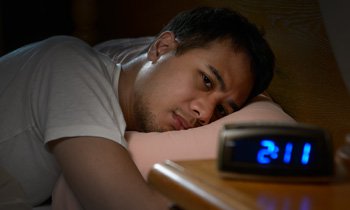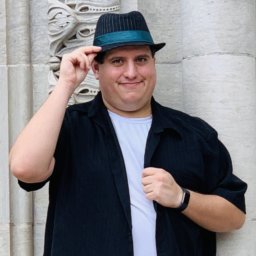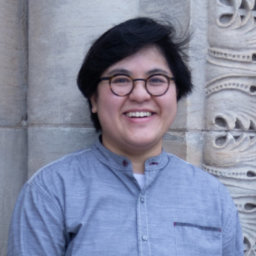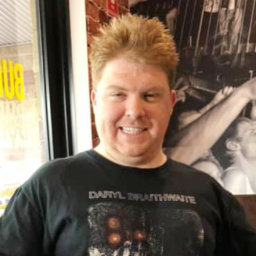It is well documented that adults on the autism spectrum tend to experience aspects of life differently from people who are neurotypical. Social situations, emotional regulation, and even physical sensations are all experienced differently by people with autism compared to their neurotypical counterparts. Indeed, the simple act of going out to buy groceries or order food at a restaurant is an incredibly different experience for somebody with autism than the experience of neurotypical people.
But while it’s true that many of the experiences of people on the spectrum are becoming better understood and documented by diligent research over time, there’s still many aspects of adult autistic life that are not well researched, understood, or accounted for. One of these aspects of life has recently been highlighted over here at Spectrum Fusion: the issue of abnormal sleep patterns.
In the past few weeks, several of our Reactor Room participants, this author included, have opened up to Doctor Ham and other Spectrum Fusion members about our issues with getting the right amount of sleep and our issues with when we feel we need to sleep. Nearly across the board, participants of the Reactor Room have expressed some issue with their sleeping, ranging from waking up frequently during the night to having difficulty falling asleep at all to having little or no control over when they fall asleep, even if it’s in the middle of the day. Other participants have expressed an inability to get up due to how sleepy they feel, even after what should be sufficient amounts of sleep. One participant in particular described how being tired is one of the worst feelings they ever experience, describing how their experience of tiredness often leaves them incapable of thinking straight or focusing on anything and leaving them in a ‘vegetable-like’ state, often accompanied by headaches, strange feelings in their gut, and extreme irritability. They say they feel these extremes of tiredness even when they’re only “just beginning” to get tired, or even when they’ve gotten a full night sleep the night before and the day is only just starting to creep into evening.
While it’s true that correlation does not prove causation, we at Spectrum Fusion found it interesting that so many of our Reactor Room participants had similar stories about problems with sleeping. It’s long been known that children and teens on the autism spectrum tend to have difficulties sleeping, and a great deal of research has been devoted to this. Unfortunately, like most autism research, this research was focused solely upon children and teens and adults on the spectrum were, as usual, excluded from any studies. What’s more, while it seems that we’ve long since confirmed a link between autism and sleep abnormalities, very little is being done to address or correct these abnormalities, especially in adults.
Naturally, it does not seem likely that sleeping issues that are experienced by children and teens would simply go away upon adulthood. As we have established numerous times, children on the spectrum grow up to be adults on the spectrum, with similar problems and issues and challenges to those they had in their childhood that they need to overcome. And it’s especially tragic that there is no research being done into this with adults on the spectrum because sleep issues are even worse for adults than they are for children. While sleep issues might lead to problems at school for children, for adults it means lost jobs, an inability to get hired, and potentially even loss of their homes should their sleep issues make them incapable of keeping work.
With everything discussed so far in mind, some of the things stated by our Reactor Room participants become quite interesting. This all raises questions of how people on the spectrum may experience sleep and tiredness differently from neurotypical people. The participant who described just how unpleasant it was being even mildly tired is incredibly different from how neurotypical people tend to describe feelings of mild exhaustion. The sheer intolerableness of the situation is extreme, and comparable, perhaps, to many other sensory issues that autistic people face when dealing with things like food or fabrics or bright lights or loud noises or any number of other physical sensations. These may not just be sleepiness issues that can be corrected by “pulling themselves up by their bootstraps” and dealing with it.
At this moment, it’s likely that my own family is raising their eyebrows at this blog and wondering if I’m trying to make excuses for my own foibles when it comes to sleep; that I’m trying to say that we on the spectrum should just be left alone to sleep however we please with no consequences. This is not, however, what I am saying. That would not benefit anybody and would only further preclude adults on the spectrum from finding employment. Alas, as nice as it would be to sleep whenever we want for as long as we want, this is still the real world and that is not a feasible goal.
What I am suggesting, though, is that more research be done into this area, particularly when it comes to adults on the spectrum. While the research done into children on the spectrum is admirable, the research is still quite lacking when it comes to autistic adults. One might consider this a call for autism researchers to take a closer look into this topic and see what comes up.
I would also recommend that adults on the spectrum, if they are having issues with their sleep patterns or sleep habits, to start looking into sleep therapies or volunteering for sleep studies so that they can have their issues better understood. Sleep research has become very prominent in the psychological community in recent years, and it is surprisingly easy to find researchers who need participants in sleep studies or who are willing to analyze people’s’ sleeping patterns and offer advice and possible treatments. And if enough autistic adults can give these researchers a decent data pool to draw conclusions from, they might be able to devise therapeutic methods that will work better for us than us all continuing to struggle in vain to correct our sleep habits if it is clearly not working.







